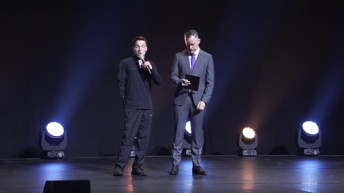Topics were wide-ranging and included Sally Gosling, from the UK’s Chartered Society of Physiotherapy, who explored the impact of new apprenticeship courses on workforce development, and Tomas Ellwanger-Morales, from Chile, who showcased his scoping study on physical therapists’ self-efficacy.
Physical therapists’ own development while in practice featured in many of the studies, including Sirpa Ahola, from Norway, who delved into therapists’ own awareness and understanding of movement and how that impacts positively for their patients.
Dr Clare Killingback, from Hull University in the UK, looked at some of the best ways students receive feedback including technology such as ‘screencast’ and audio visual applications. In her trial Dr Killingback reported a quality improvement for student feedback from 80-96%.
Chi Ngai Lo, from Singapore, found some fascinating insights while trialling a 3D technology simulation to assist learning. He found there was a distinct difference between the ways in which male and female students prefer to receive their information. His conclusion was that 3D technology for teaching and learning helps to counterbalance the difference between the sexes.
What was apparent from all the presentations and the discussions that followed was that creativity in learning and development is important for future workforce development. Delegates benefitted from fascinating findings and inspiration for their own students.




